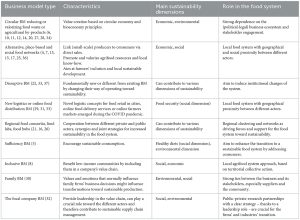Estate Planning – Protecting Your Assets and Legacy
3 min read
Every adult should create an estate plan to ensure the transfer of their property and assets to the individuals or organizations of their choosing upon death.
Planning ahead can help minimize taxes paid by beneficiaries, avoid probate and unnecessary legal fees. But remember: this is an ongoing process – so be sure to review your plan periodically.
1. Taxes
Taxes on inherited wealth can be a significant impediment to wealth accumulation for many people. By creating an estate planning strategy that keeps your estate below the threshold for taxation, you may reduce or even eliminate your family’s tax burden.
An effective plan will guarantee your wishes are carried out as intended, while minimizing taxes and legal expenses.
A comprehensive legacy plan should include documents such as a will or trust, beneficiary designations and power of attorney. It also contains instructions on how to distribute assets and designate someone as guardian for children or pets.
An experienced financial advisor will assess your current financial situation and income requirements to recommend which estate planning tool is most suitable. They also calculate any taxes that may apply depending on the strategy chosen.
2. Inheritance
Inheritance is the practice of passing on private property, titles, debts, entitlements and privileges after someone’s death. While this practice is commonplace in many countries, its exact nature varies from culture to culture.
Becoming the beneficiary of an inheritance can either be a blessing or a curse, depending on how you use it. Navigating an inheritance can be challenging and emotionally draining, so it’s essential to be prepared.
Before your estate is inherited, there are steps you can take to safeguard both your assets and legacy.
One way to plan your wealth management strategy is by working with a financial advisor. Your advisor can suggest setting up spending needs, short-term goals, long-term objectives and philanthropy buckets so you make the most of your newfound money.
3. Health Care
Establishing an estate plan can help you express your wishes and ease the burden on your family members when you pass away. Furthermore, it offers clarity regarding end-of-life care should you become incapacitated before passing away.
A medical power of attorney (POA) allows you to appoint another individual to make health care decisions on your behalf if you become incapacitated. Additionally, you can create a living will which outlines your wishes regarding medical treatment at the end of life.
Maintaining your documents is essential. For instance, if you change your mind about end-of-life care or emergency treatment, be sure to update your advance directive documents immediately.
4. Property
Your financial assets are your most prized possessions, yet they could be taken away in a lawsuit. Asset protection strategies are essential components of estate planning because they help guarantee that none of your wealth is taken away from you and your family.
Assets can be safeguarded against creditors and lawsuits by transferring them directly to family members or placing them in an asset protection trust. This strategy is especially crucial for heirs who aren’t financially independent.
5. Caregiving
Caregiving can be an emotionally, physically and financially draining role. It involves shopping, housekeeping, providing transportation, feeding, bathing and toilet assistance as well as managing a person’s finances.
Caregivers are not just those who provide direct physical care; they also take an active role in coordinating the delivery of medical and health services.
In the United States alone, 44 million individuals provide care to others.
Family caregivers are those individuals who provide unpaid assistance to a sick or elderly person.
Many families experience difficulty striking a balance between work and caring for their family members, particularly immigrants who move to the United States and face language barriers.






